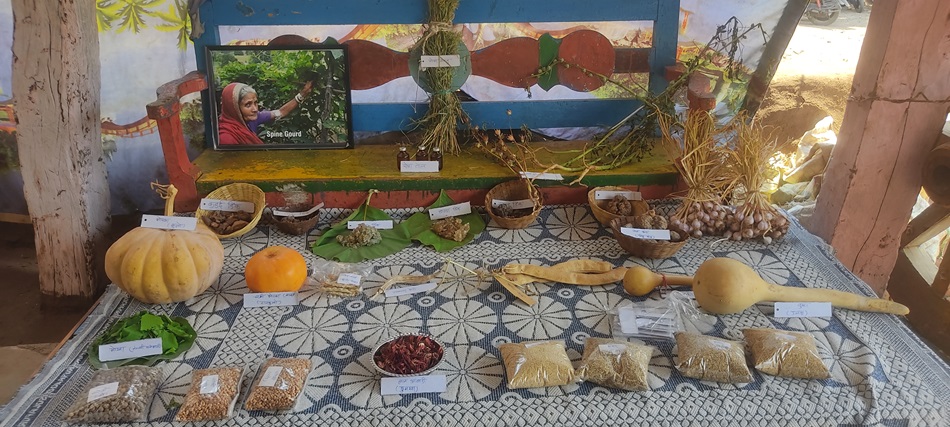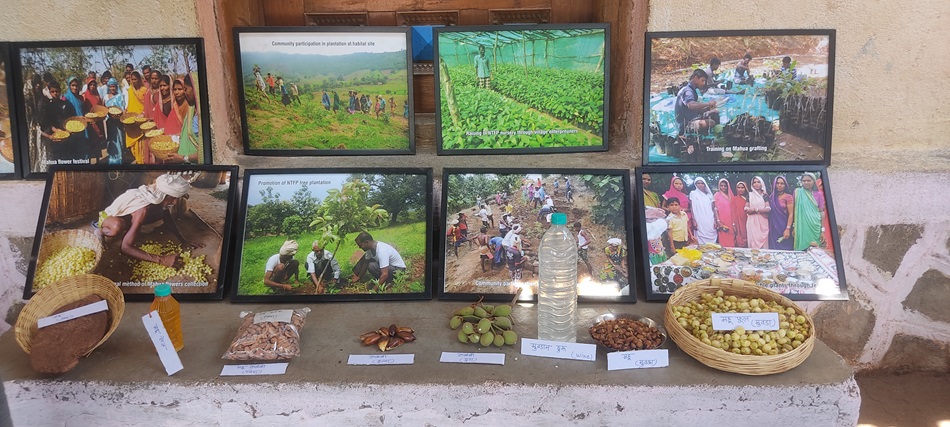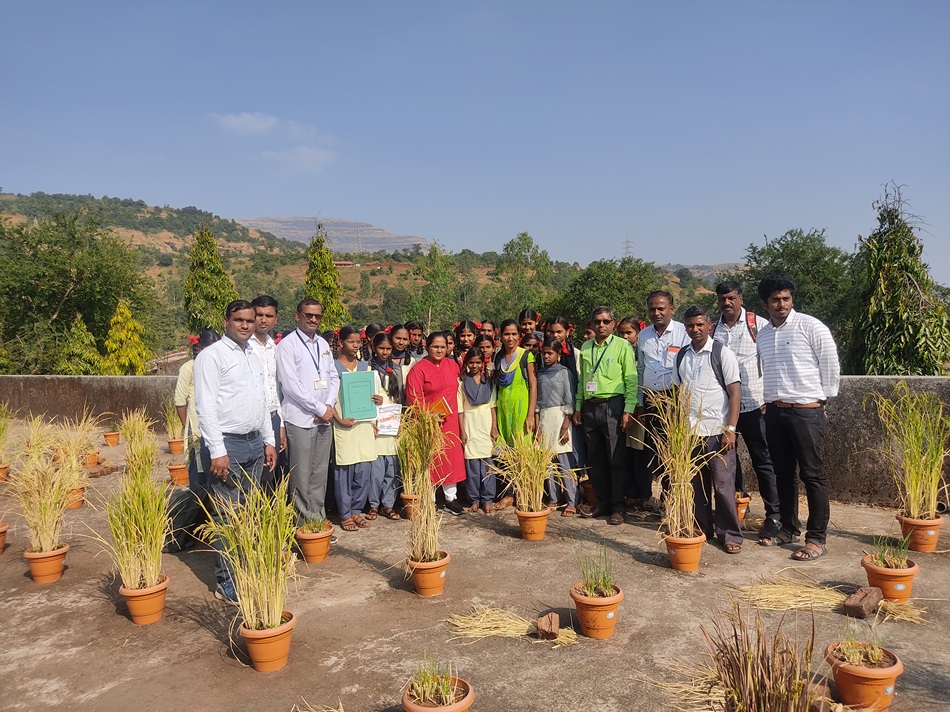Women and food-centric interventions through the NATURE+ Initiative aim to increase the resilience of rural women.
By Mansi Tripathi, Researcher – Resource Recovery and Reuse, IWMI
Alok Sikka – Principal Researcher and Country Representative, IWMI
Jai C. Rana– Senior Scientist & Country Rep. (India), The Alliance of Bioversity International and CIAT

This years’ International Day of Rural Women puts a spotlight on, “Rural Women Cultivating Good Food for All.” The CGIAR Initiative on Nature-Positive Solutions (NATURE+) aims to re-imagine, co-create and implement nature-positive, solutions-based agri-food systems that equitably support food and livelihoods while ensuring that agriculture is a net positive contributor to biodiversity and nature. The focus geographies of NATURE+ India are largely tribal-dominated rural areas, where men mostly migrate to cities for work and women are left behind to single-handedly cater to the needs of home, children, cattle, and farms. Largely overworked and undernourished, these women are perpetually weak and anemic even when they are themselves “the custodians” of traditional nutritional practices. To fill this gap and make rural women more self-reliant, NATURE+ India has partnered with the Indian Council of Agricultural Research (ICAR) and the BAIF Development Research Foundation (BAIF) for research-based and field-based interventions respectively.
Reviving traditional food practices: Rural women to the fore

To revive the importance of native varieties of food grains, fruits, vegetables and wild edibles in the target sites, NATURE in partnership with BAIF recently organized three wild food festivals. The goal of these events was to promote knowledge of traditional rural and tribal culinary practices, food diversity and emphasize the importance of wild foods along with their nutraceutical and therapeutic properties. The events were held in the Akole, Igatpuri, and Shahada sub-clusters in the state of Maharashtra on August 22, 25, and 26, 2023. The festival saw participation of local tribal and rural women, experts, government representatives, students, and enthusiasts who shared their knowledge and experiences with wild edibles.
The Igatpuri cluster had the participation of 15 self-help groups (SHGs) and 179 farmers, representatives from the National Bank for Agriculture and Rural Development and Zonal Agricultural Research Station, as well as agriculture officers. Similarly, Shahada had the participation of 35 SHGs and more than 129 participants, representatives from the agriculture department, and local government bodies.

The women are also receiving support to organize exhibitions and demonstrations within local schools. Such interventions highlight the significant role of rural women in protecting biodiversity and indigenous peoples’ knowledge, highlighting the profound connection between dietary choices, cultural practices, and the natural environment. This has led to their demand for setting up methods for non-timber forest products for oil and alcohol extraction from Mahva (Madhuca longifolia) to increase their self-reliance. NATURE+ is also training women in nursery raising activities and implementing plantation projects within kitchen gardens.
Building self-reliance
Previously, women were the last on the food and nutrition table due to limited nutrient supply and diversity. However, interventions like wild food festivals, kitchen gardens as well as documentation of traditional food systems through a knowledge sharing platform will not only ensure their nutrient sufficiency but also acknowledge their leadership in fostering nutritional diversity. “Women should be involved actively across water dialogues and decision-making at all levels; thus, all these interventions are being planned and executed with rural women at their core,” says Alok Sikka, Country Representative, IWMI India.
IWMI is undertaking several other interventions that will enhance the resilience and self-reliance of rural women. Women farmers interested in agri-residue based entrepreneurship will be supported to start their own ventures by connecting them to the Circular Bioeconomy Innovation Hub, India. It will provide them with technical and financial support in terms of knowledge, handholding and also initial seed funding. It will provide them exposure to national and international experts who along with our other partners will guide them to become self-reliant and utilize their time and resources to achieve the best possible outputs. Women, as “custodians” of traditional knowledge, will be encouraged to take up traditional crafts (agri-residue based) and build profitable businesses around it. This will include a range of value-added products like compost, briquettes, biochar and traditional biogas plants.
A changing mindset
The theme for this year’s International Day of Rural Women—“Rural Women Cultivating Good Food for All”—is not just a philosophical statement. Nature+ foregrounds the significant role played by rural women in protecting and promoting traditional foods, a reflection of the changing mindset towards rural women and their importance in the social order.

